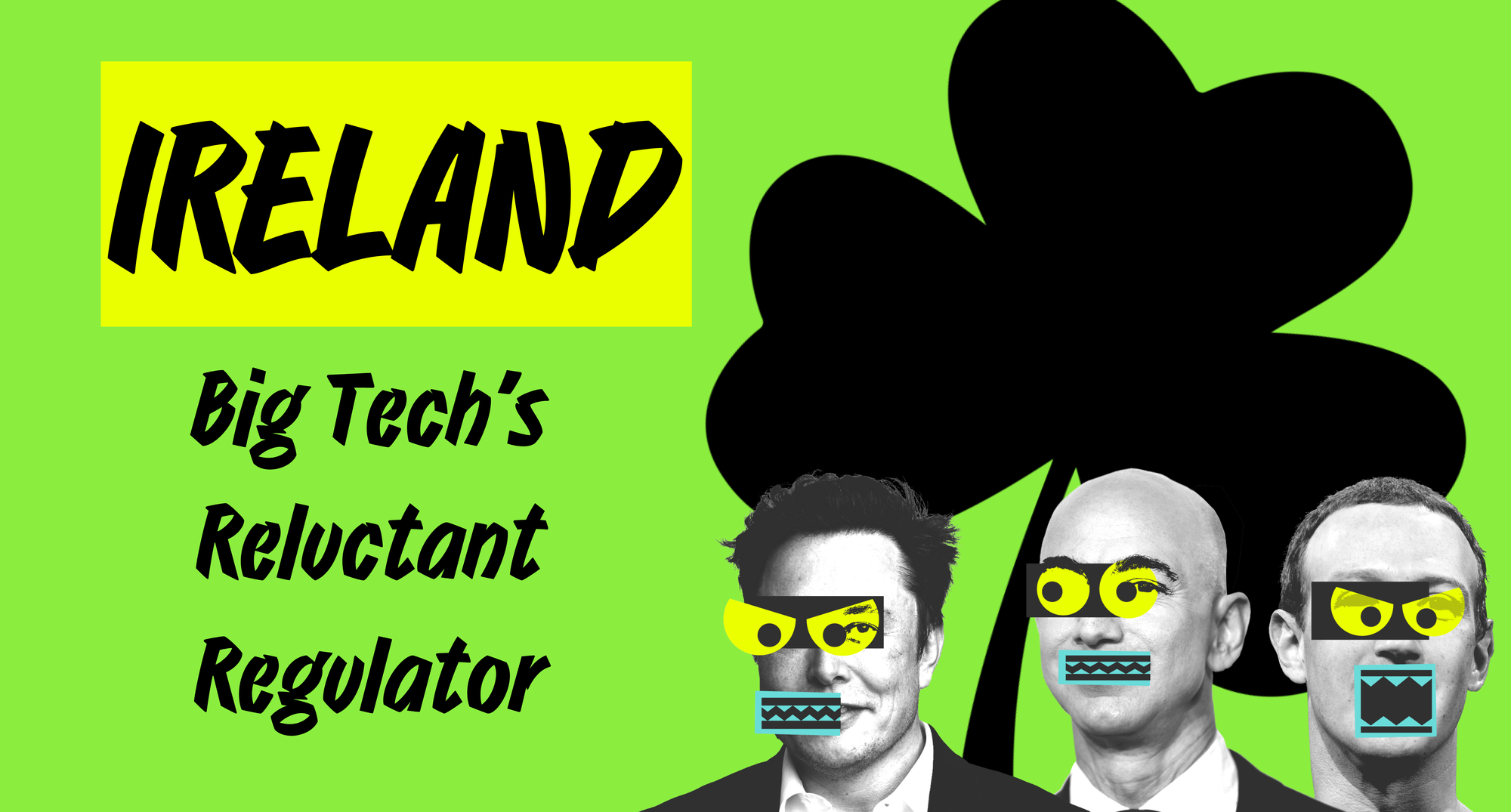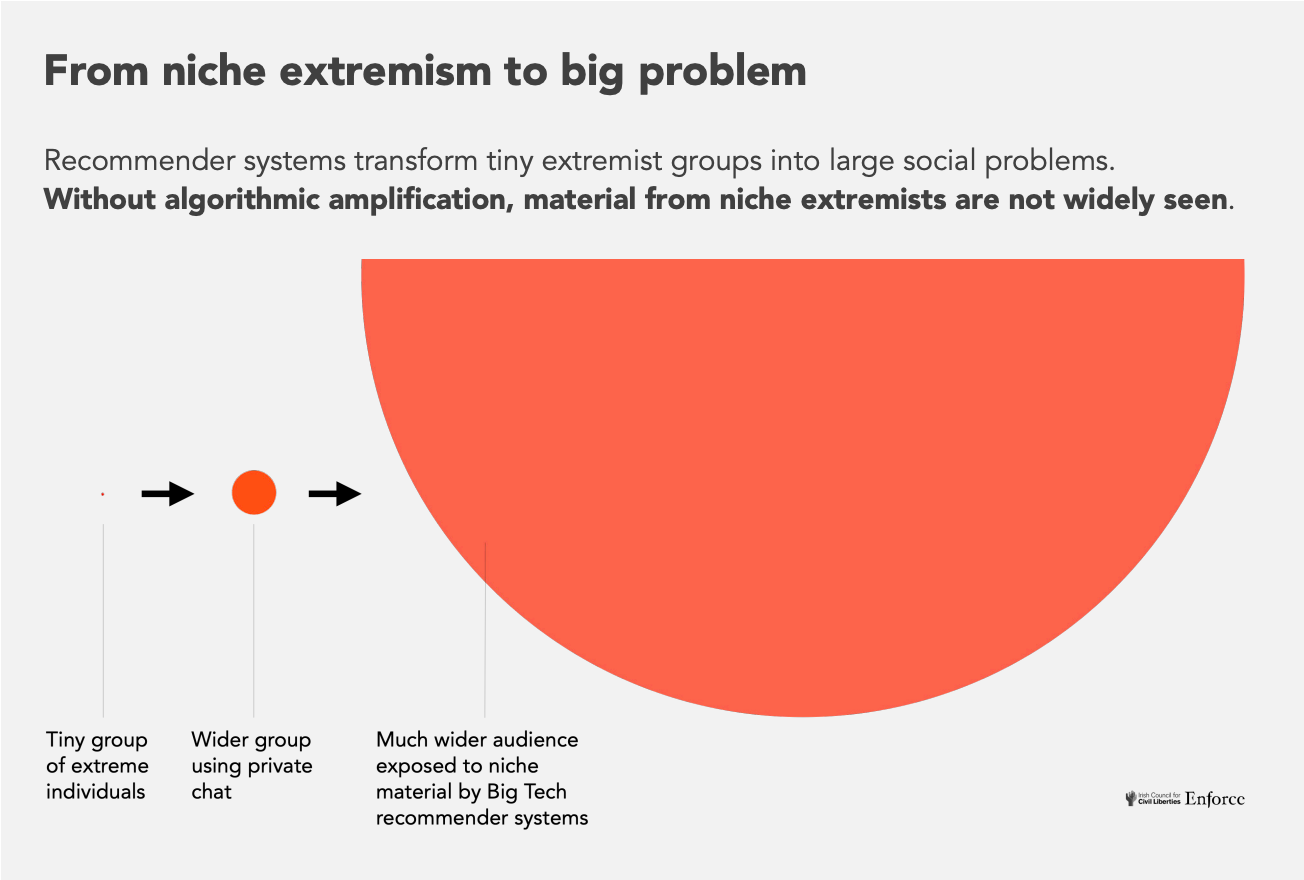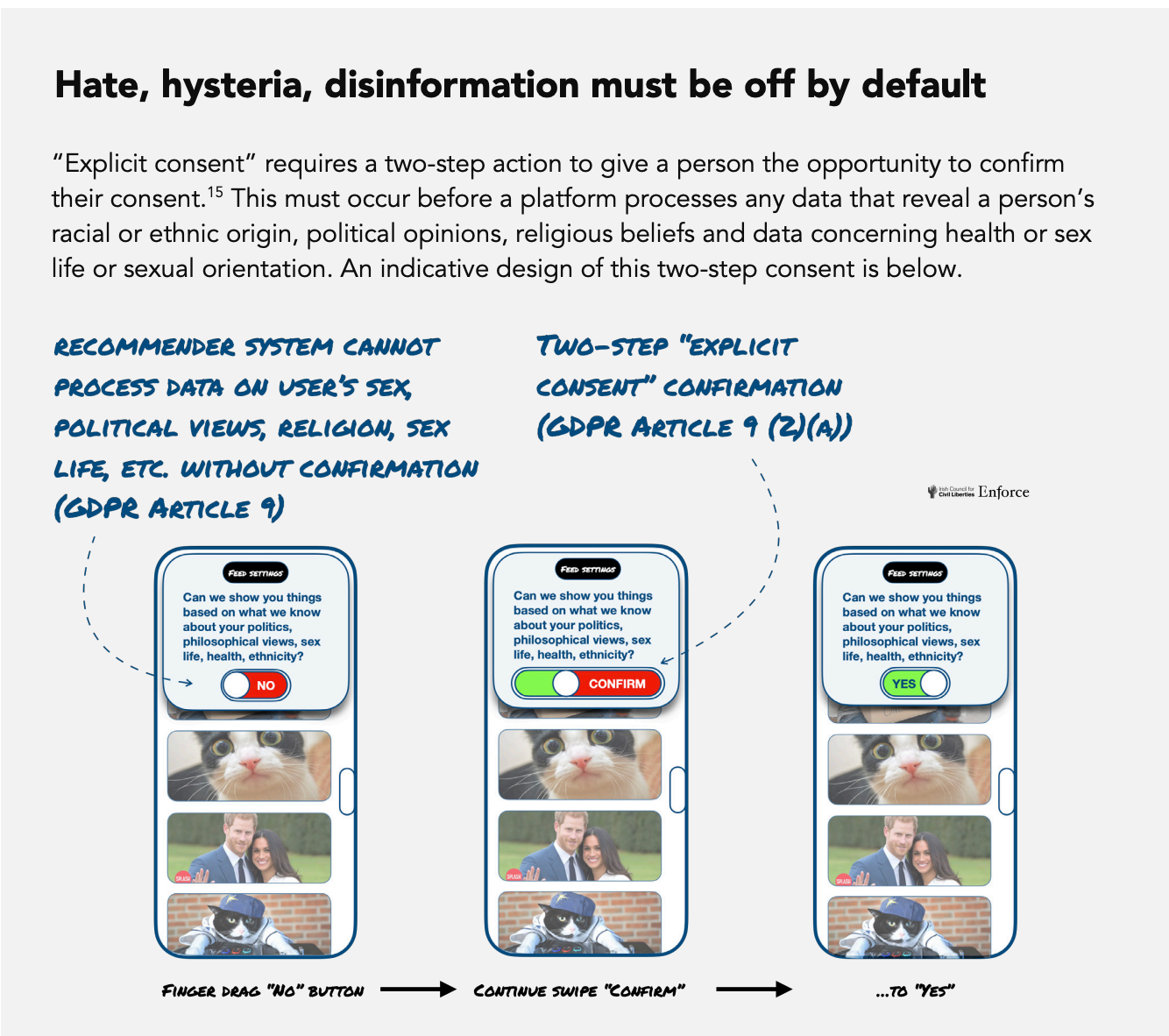Ireland: Big Tech’s Reluctant Regulator
Is Ireland putting profit before European citizens’ rights? 🧐🇮🇪

When racist riots fuelled by online disinformation broke out in the UK this summer, next door in Ireland, I got serious déjà vu.
In November 2023, three children and their care worker were attacked with a knife outside a Dublin school. Within an hour, rumours began circulating on social media, wrongly identifying innocent people as the assailant.
The real perpetrator (an Irish citizen of Algerian birth) had been apprehended, but online all migrants were being blamed – and the platforms were used to incite violence in Dublin. By that evening, racist rioters had set fire to and looted the heart of Ireland’s capital.
I’m Peter McGuire, a journalist and former lecturer at University College Dublin specialising in conspiracy theories and rumours. This week, I’m looking at Ireland’s relationship with Big Tech, what needs to change, and how decisions made in this small nation at the edge of Europe have wider global consequences.
The role of social media in the violence should have been a wake up call for my country, which is the European base for most Big Tech firms. But with the sector accounting for about 13 percent of our GDP, it’s easy for the government to put that wake up call on snooze 😴
Biting the hand that feeds you
Many of us hoped the Dublin riots would be a turning point away from hate, division and misinformation. Instead, I’ve since seen asylum-seekers and Irish people of colour in my area heckled, abused and intimidated, visibly afraid as they left their homes.
This is part of the protests outside asylum seeker accommodation across Ireland. It's common knowledge that many of the aggressors are not local. Radicalised online by algorithms pushing extreme content, many travel from one protest to another.
Events like these are sadly not unique to Ireland. But with so many social media companies based on our shores, Ireland is unique in terms of its power to bring about positive change.

Meta, Google and X are among the companies with European, Middle East and Africa headquarters in Ireland, attracted by an educated, English-speaking workforce and – perhaps most of all – a low tax regime. (Not to mention America’s long-standing love affair with Ireland; it’s not quite reciprocated, but we will happily dress as leprechauns if they give us money 😎)
These firms are not only major employers, but major taxpayers: they are a big factor in why Ireland’s economy is booming and the Government recently announced a giveaway budget. We also host large numbers of their data centres, which make up 18 percent of the country’s total metered electricity consumption.
The government is such a fangirl of Big Tech that it literally argued against the need for Apple to pay us $14 billion after the EU accused Ireland of giving them illegal tax advantages. Europe’s top court recently won this case, meaning Ireland has to…awkwardly accept the money?
Credit: Killian Sundermann @killersundy
The presence of these companies also makes Ireland the de facto regulator of Big Tech across Europe, in accordance with EU law. In particular, the Irish Data Protection Commission (DPC) is charged with addressing complaints about how these firms handle our personal data.
It’s taken some action, including imposing a record fine of €1.2 billion against Meta for transfers by Facebook of Europeans’ personal data to the US – but this was only after the EU intervened.
The Data Protection Commission told us in an email statement that their “record stands up to any scrutiny,” mentioning their role in companies like X, Meta and Google either suspending or pausing their processing of personal data to train AI tools in the EU.
But much of the rest of Europe has long thought we are far too financially dependent on these firms to regulate them properly. France, Spain and Germany have been critical of how slow Ireland is to act against Big Tech. In 2023, the European Data Protection Board actually overturned several decisions made by the Irish regulator, in some cases replacing them with harsher penalties. As Sinéad Gibney, Ireland’s former Chief Commissioner at the Irish Human Rights and Equality Commission, told me:
“There have been some steps towards regulation in the online space, but they’re industry-led and not that concerned with individual rights, or in tackling hate speech. I don’t think that these companies will do anything they don’t have to do, unless it involves making more money."
It’s a data problem 👾
Molly, an Irish student and activist from Galway told me they regularly post on TikTok and Instagram about LGBTQ+ issues, mental health, climate change and Palestine. But it’s come at a personal cost:
“When I spoke out, I had my address shared, my mother was attacked online because I am non-binary, and I have had death threats. One morning, I woke up to over 2,000 comments; I wasn’t even 18.”
Whether it's safety risks to LGBT+ teens or the spread of xenophobic disinformation, according to Dr Johnny Ryan, director of Enforce at the Irish Council for Civil Liberties, harmful online content is not a speech problem - it’s a data problem.
Big Tech uses data profiling to select emotive and extreme content to keep us on our devices for longer. This affects everything from our politics to our mental health. Posing as a 13-year-old child who watches mental health content, researchers at Amnesty International found they only had to spend between 3 and 20 minutes on TikTok before the algorithm started to show videos romanticising suicide.
While the EU’s Digital Services Act rightly prohibits targeted advertising to minors based on data profiling, recommender algorithms based on data profiling – think Instagram’s ‘Explore’ page – still put kids at risk. The Irish media regulator came close to fixing this last year when it proposed that video sharing platforms turn off data profiling in recommender systems by default. Unfortunately, the measure did not make it into law.
Johnny believes laws protecting our data privacy could save the day here for people of all ages, acting as an antidote to algorithms which often feed us harmful, extreme content:
"Recommender algorithms rely on intimate data about each user to calculate what will keep them glued to the feed. Such data enjoy particularly high protection as “special category data” in the GDPR…As a result, proper enforcement would switch off default data-profiling in recommender algorithms. People, not algorithms, could decide what they want to see and to share with their friends. Each user would be able to switch the passive data profiling on again if they wished.”

This could be a game changer in the fight against online hate and disinformation, which also avoids infringing freedom of speech, and Ireland could make it happen. If the Irish State moved to enforcing the GDPR, the EU’s data protection regulation, it would have European-wide consequences. As Johnny put it:
“Ireland's failures to fully apply the GDPR while being Europe’s lead supervisor for the largest and proportionately highest risk firms in Europe has exposed everyone across the union to data protection hazards for many years.”
For now, all eyes are on Michael McGrath, the Irish politician (and former Minister of Finance) who has recently been selected to be European Commissioner for Justice, making him responsible for ensuring the GDPR is fully applied by member states 👀
Of course, limiting the creepy things Big Tech companies can do with our data would be bad news for their toxic business model which pushes more extreme content in pursuit of clicks and advertising dollars. But that’s exactly why governments have to get involved.
“Ireland has consistently sent the message that it prizes its relationship with the companies over European citizens rights but that relationship is coming under fire from the public,” says Siobhán at Uplift, a people-powered movement for progressive change. In Dublin today Uplift is holding The People’s Inquiry on Harms Caused by Big Tech. At this event, the public will hear from experts panel and ordinary people like Molly about online harms with the goal of putting more pressure on Irish and EU leaders. Siobhán is hopeful about this approach:
“Every day, people experience Big Tech in their lives at every level. For too long, we have been told we can't make a difference, but through people coming together, sharing their stories and putting politicians under pressure, we can bring about real and lasting change.”
Actions you can take ✊
- Irish citizens can contact their local TDs (members of parliament) and demand action to enforce the GDPR.
- To learn more about what you can do, follow Uplift on TikTok, Instagram or X, sign petitions or become a member.
- Don’t let big tech use your data against you; turn off the recommendation algorithms - here’s how.

